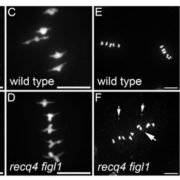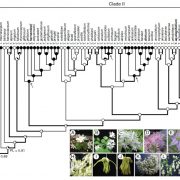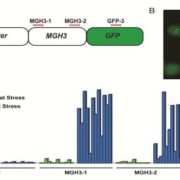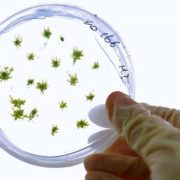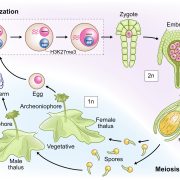Synthetic apomixis: Asexual propagation through seeds (Nature) ($)
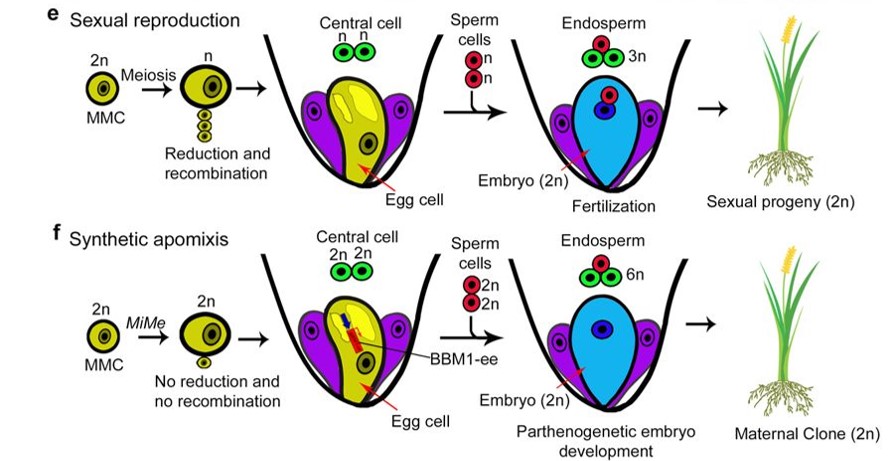 Sexual reproduction mixes up genes and provides genetically diverse progeny, key for survival and fodder for evolution. Sexual reproduction is detrimental to the propagation of hybrid crops though, as mixing up the genes leads to progeny that will be inferior to the hybrid parent. Khanday et al. have developed an asexual-propagation trait that allows a hybrid plant to reproduce clonally, with the progeny also carrying the desirable genome-wide heterogeneity. They accomplish this by silencing genes encoding the BABYBOOM transcription factor (BBM1-3) and introducing a BBM1 gene expressed solely in the egg cell. This leads to embryo development in the abscence of fertilization and clonal progeny, although seed production still requires fertilization to generate the endosperm. This work, which builds on previous studies that have shown the capacity of BBM1 to induce somatic embryos from vegetative tissues, shows that seed propagation from hybrid rice varieties can occur without genetic segregation. (Summary by Mary Williams) Nature 10.1038/s41586-018-0785-8 A different strategy was used towards the same end in a new preprint by Wang et al. See
Sexual reproduction mixes up genes and provides genetically diverse progeny, key for survival and fodder for evolution. Sexual reproduction is detrimental to the propagation of hybrid crops though, as mixing up the genes leads to progeny that will be inferior to the hybrid parent. Khanday et al. have developed an asexual-propagation trait that allows a hybrid plant to reproduce clonally, with the progeny also carrying the desirable genome-wide heterogeneity. They accomplish this by silencing genes encoding the BABYBOOM transcription factor (BBM1-3) and introducing a BBM1 gene expressed solely in the egg cell. This leads to embryo development in the abscence of fertilization and clonal progeny, although seed production still requires fertilization to generate the endosperm. This work, which builds on previous studies that have shown the capacity of BBM1 to induce somatic embryos from vegetative tissues, shows that seed propagation from hybrid rice varieties can occur without genetic segregation. (Summary by Mary Williams) Nature 10.1038/s41586-018-0785-8 A different strategy was used towards the same end in a new preprint by Wang et al. See


